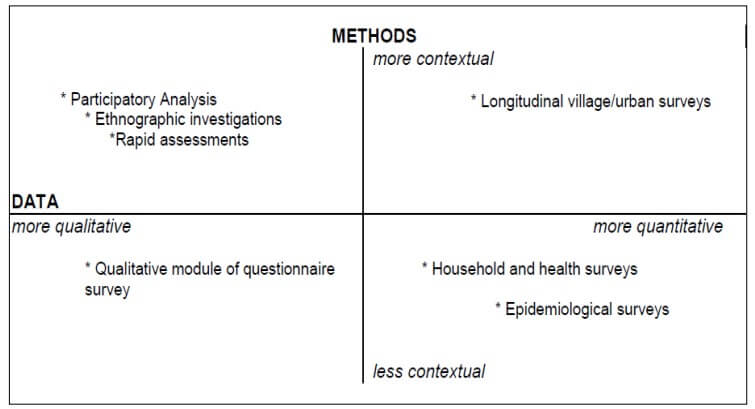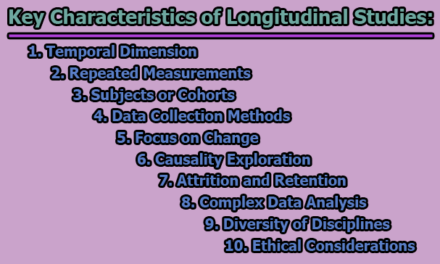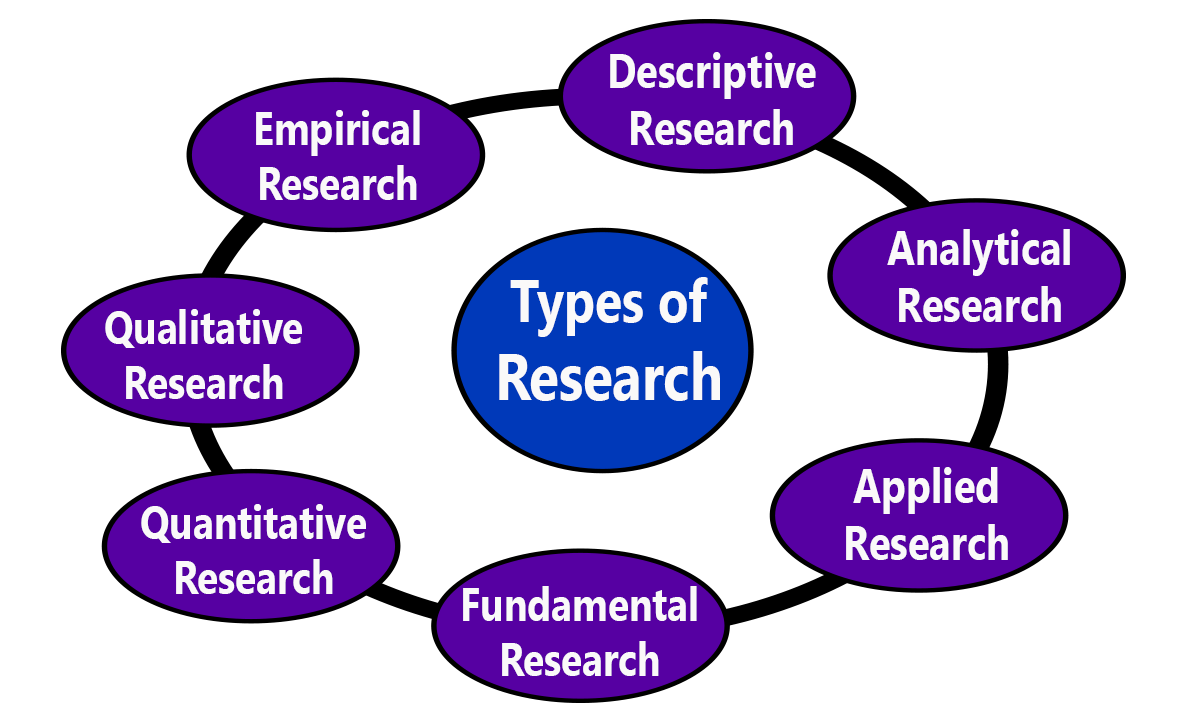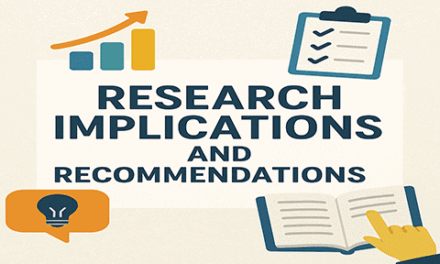Research methodology
Research methodology is a collective term for the structured process of conducting research. There are many different methodologies used in various types of research and the term is usually considered to include research design, data gathering, and data analysis. Research methodology seeks to inform: Why a research study has been undertaken, how the research problem has been defined, in what way and why the hypothesis has been formulated, what data have been collected and what particular method has been adopted, why particular technique of analyzing data has been used and a host of similar other questions are usually answered when we talk of research methodology concerning a research problem or study.
In simple terms, research methodology is used to give a clear-cut idea of what the researcher is carrying out his or her research. In order to plan at the right point of time and to advance the research work, research methodology makes the right platform for the researcher to map out the research work in relevance to make solid plans. Moreover, research methodology guides the researcher to involve and be active in his or her particular field of inquiry. Most of the time, the aim of the research and the research topic won’t be the same at all times it varies from the objectives and flow of the research, but by adopting a suitable methodology this can be achieved.
Right from selecting the topic and carrying out the research, the research methodology drives the researcher on the right track. The entire research plan is based on the concept of the right research methodology. Moreover, through the research methodology, the external environment constitutes the research by giving an in-depth idea on setting the right research objective, followed by literature point of view, based on that chosen analysis through interviews or questionnaires findings will be obtained and finally concluded the message by this research.
Source: Hentschel (1999)
The research methodology constitutes the internal environment by understanding and identifying the right type of research, strategy, philosophy, time horizon, and approaches, followed by the right procedures and techniques based on his or her research work. Additionally, the research methodology acts as the nerve center because the entire research is bounded by it, and to perform good research work, the internal and external environment has to follow the right research methodology process.
The system of collecting data for research projects is known as a research methodology. The data may be collected for either theoretical or practical research for example management research may be strategically conceptualized along with operational planning methods and change management. Some important factors in research methodology include the validity of research data, ethics, and the reliability of most of your work is finished by the time you finish the analysis of your data. This is followed by a research design, which may be either experimental or quasi-experimental. The last two stages are data analysis and finally writing the research paper, which is organized carefully into graphs and tables so that only important relevant data is shown.
Importance of Research Methodology in Research
It is necessary for a researcher to design a research methodology for the problem chosen. One should note that even if the research method considered for two problems are the same the research methodology may be different. It is important for the researcher to know not only the research methods necessary for the research undertaken but also the methodology. For example, a researcher not only needs to know how to calculate the mean, variance, and distribution function for a set of data, how to find a solution to a physical system described by a mathematical model, how to determine the roots of algebraic equations and how to apply a particular method but also need to know (i) which is a suitable method for the chosen problem?, (ii) what is the order of accuracy of the result of a method?, (iii) what is the efficiency of the method? And so on. Considerations of these aspects constitute a research methodology. More precisely, research methods help us get a solution to a problem. On the other hand, the research methodology is concerned with the explanation of the following:
(1) Why is a particular research study undertaken?
(2) How did one formulate a research problem?
(3) What types of data were collected?
(4) What particular method has been used?
(5) Why was a particular technique of analysis of data used?
The study of research methods gives the training to apply them to a problem. The study of research methodology provides us with the necessary training in choosing research methods, materials, scientific tools, and training in techniques relevant to the problem chosen.
Types of Research Methodologies
Research methodologies can be quantitative or qualitative. Ideally, comprehensive research should try to incorporate both qualitative and quantitative methodologies but this is not always possible, usually due to time and financial constraints. Research methodologies are generally used in academic research to test hypotheses or theories. A good design should ensure the research is valid, i.e. it clearly tests the hypothesis and not extraneous variables, and that the research is reliable, i.e. it yields consistent results every time.
Qualitative Research Methodology: is a highly subjective research discipline, designed to look beyond the percentages to gain an understanding of feelings, impressions, and viewpoints.
Key Characteristics of Qualitative Research
- Events can be understood adequately only if they are seen in context. Therefore, a qualitative researcher immerses her/himself in the setting.
- The contexts of inquiry are not contrived; they are natural. Nothing is predefined or taken for granted.
- Qualitative researchers want those who are studied to speak for themselves, to provide their perspectives in words and other actions. Therefore, qualitative research is an interactive process in which the persons studied teach the researcher about their lives.
- Qualitative researchers attend to the experience as a whole, not as separate variables. The aim of qualitative research is to understand experience as unified.
- Qualitative methods are appropriate to the above statements. There is no one general method.
- For many qualitative researchers, the process entails appraisal of what was studied.
- Qualitative implies a direct concern with experience as it is `lived’ or `felt’ or `undergone’, then, has the aim of understanding experience as nearly as possible as its participants feel it or live it.
Quantitative Research Methodology: as the term suggests, concerned with the collection and analysis of data in numeric form. It tends to emphasize relatively large scale and representative sets of data, and is often, falsely in our view, presented or perceived as being about the gathering of `facts’.
Key Characteristics of Quantitative Research
- Control: This is the most important element because it enables the scientist to identify the causes of his or her observations. Experiments are conducted in an attempt to answer certain questions. They represent attempts to identify why something happens, what causes some event, or under what conditions an event does occur. Control is necessary in order to provide unambiguous answers to such questions. To answer questions in education and social science we have to eliminate the simultaneous influence of many variables to isolate the cause of an effect. Controlled inquiry is absolutely essential to this because without it the cause of an effect could not be isolated.
- Operational Definition: This means that terms must be defined by the steps or operations used to measure them. Such a procedure is necessary to eliminate any confusion in meaning and communication. Consider the statement `Anxiety causes students to score poorly on tests. One might ask, `What is meant by anxiety?’ Stating that anxiety refers to being tense or some other such term only adds to the confusion. However, stating that anxiety refers to a score over a criterion level on an anxiety scale enables others to realize what you mean by anxiety. Stating an operational definition forces one to identify the empirical referents or terms. In this manner, ambiguity is minimized. Again, introversion may be defined as a score on a particular personality scale, hunger as so many hours since the last feed, and social class as defined by occupation.
- Replication: To be replicable, the data obtained in an experiment must be reliable; that is, the same result must be found in the study is repeated. If observations are not repeatable, our descriptions and explanations are thought to be unreliable.
- Hypothesis Testing: The systematic creation of a hypothesis and subjecting it to an empirical test.

Library Lecturer at Nurul Amin Degree College










